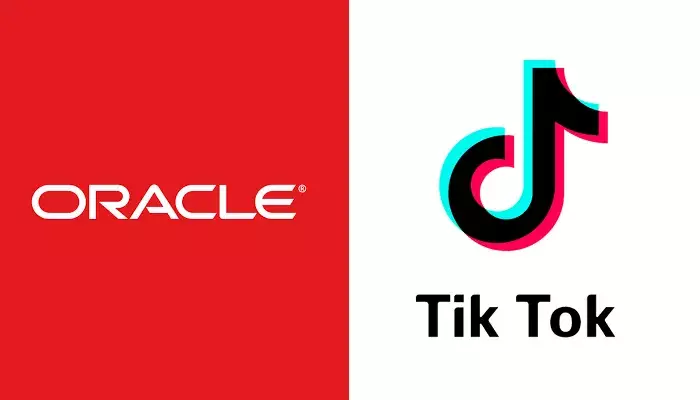The saga of TikTok in the United States has been laden with political, economic, and cultural undercurrents. Originating from China’s ByteDance, this short-form video platform has captivated millions, yet it finds itself ensnared in the complexities of geopolitics and national security. The recent reports indicating Oracle’s emergence as a potential partner to help TikTok circumvent an outright ban in the U.S. raise questions that extend beyond mere regulations; they touch on the evolving landscape of technology and the pressing need to safeguard user data in a digitally interconnected world.
The Case for Oracle
A partnership with Oracle seems not only viable but also necessary for TikTok, given the history between the tech giant and the app. Oracle’s CEO, Larry Ellison, enjoys close ties with former President Donald Trump, which undoubtedly places Oracle in a favorable position. The rapport extends to mutual interests in data security and algorithmic oversight, as seen in their collaboration on Project Texas—a venture aimed at isolating U.S. TikTok user data from its Chinese counterparts. By reinforcing data security measures, Oracle has the technical capabilities to align with the U.S. government’s increasingly stringent regulations regarding data privacy.
While TikTok may be seen as a potential catalyst for controversy, it is Oracle’s positioning as a trusted partner that lends credibility to this venture. The company’s prior experience with government compliance and its commitment to data integrity make it an ideal candidate to help navigate the turbulent waters of regulatory compliance.
The Challenge of Chinese Regulations
However, this prospective deal is far from straightforward. The Chinese government has staunchly opposed a full divestiture of TikTok’s American operations, arguing that such a move would infringe upon national interests, particularly concerning technology transfer. ByteDance, facing pressure from the Chinese Communist Party (CCP), must tread carefully. They cannot afford to alienate the state that holds significant sway over their operations. This geopolitical tug-of-war raises a crucial question: Will a compromise be possible that appeases both the U.S. authorities eager for tighter control and the Chinese government wary of losing its grip on critical technological assets?
The implications of this deal extend beyond TikTok itself; they reverberate through the tech industry’s psyche. Possible restrictive stipulations from Beijing could have a cascading effect on how major tech firms operate under the shadow of international diplomacy. The notion that algorithms must remain safeguarded in China’s hands suggests a friction where technological progress and national sovereignty intersect.
The Societal Impact of TikTok’s Future
If Oracle succeeds in establishing a partnership with TikTok, it could fundamentally reshape the platform’s operation within the U.S. context. The implications are not purely economic. Understanding how algorithms determine user engagement will usher in discussions about content moderation, misinformation, and digital sovereignty. TikTok is not just a social media platform; it has become an important cultural touchpoint, significantly influencing music, fashion, and broader social trends.
For an American audience, the concern is about whether the essence of TikTok—the creativity and diversity it offers—would be compromised under U.S. ownership and regulation. Would the algorithm still prioritize user engagement based on entertainment value, or would it pivot towards censorship under governmental oversight? The vibrant tapestry of creators that constitutes TikTok’s ecosystem could face unprecedented changes, potentially limiting the platform’s appeal and creative freedom.
With a potential partnership between Oracle and TikTok drawing closer, the onus is on decision-makers to ensure that all stakeholders are accounted for. The dynamic between American business interests and Chinese regulatory frameworks may pave the way for what could either be a digital renaissance or a contentious battleground for social media governance. As the announcement date looms, the world will be watching, not just for the fate of TikTok but for what this signifies regarding the future relationship between technology and geopolitics. Will wisdom prevail in shaping an equitable landscape for technology, or will the complexities of power dynamics dictate the outcome, risking the very nature of our digital experiences?

